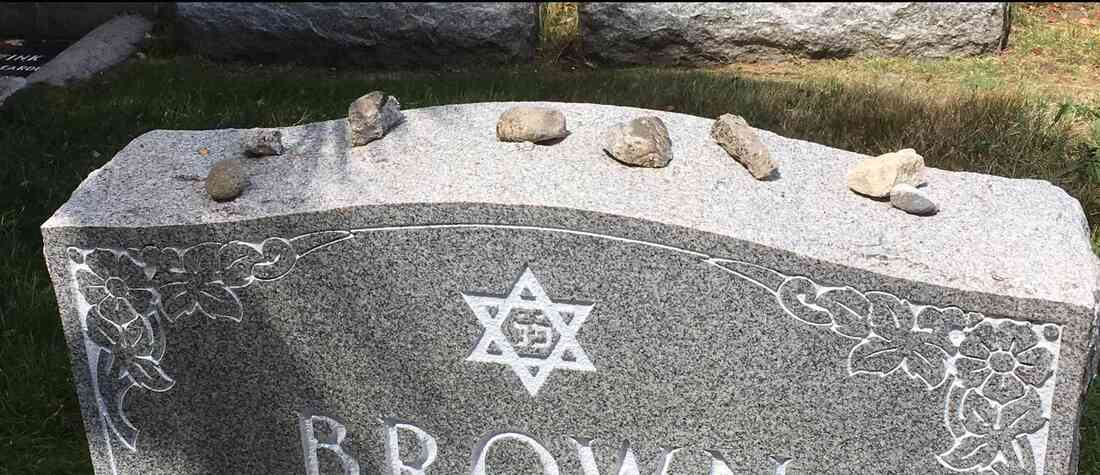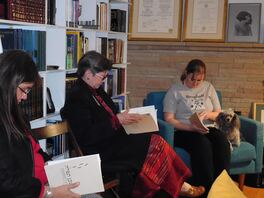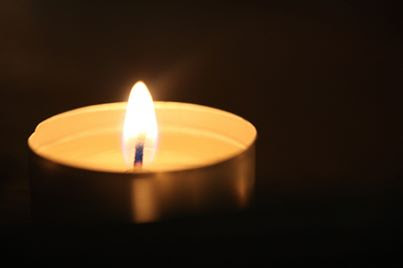
As a convert I have been struggling mightily due to the crisis in Israel and Gaza. I am utterly horrified at what Hamas did, as more and more hateful stories are emerging. The inhumanity of what they did is deeply personal; I can barely read about it anymore. The Israeli response has been more impersonal yet equally horrifying.
I wonder if I were not a convert, would I feel differently? A man I know is deeply frightened. He is not observant, but is a Jew. I do not feel as threatened, and I feel angry at the Israeli government for its incomprehensibly inhumane actions; he is not so angry. Is that because I am a convert? Do I not identity as deeply as he does as a Jew, and/or am not as vulnerable as he is because I could deny being a Jew to save my life
A huge part of the pain also is that what I cherish about Judaism is being trashed. I don’t know how to hold what I love of Judaism as I see what the Israeli government is doing. Is there is anything that you know of that I could read that might help?
My reply:
you are having the reaction that so many Americans are feeling. It is horror upon horror. After a brief sympathy for Israel the world’s mood quickly changed. Jewish news anticipated that. It has happened before. Arab culture does not have the concept of "turning the other cheek" or "the meek shall inherit the earth". To be weak is to be a fool and Arab culture is a very macho mentality. It is so alien to Americans; we quickly side with whoever we see as the underdog.
I suggest you subscribe to some Israeli media. There is so little that is getting into American news coverage and next to nothing about what is really going on.
Try starting with these online news outlets.
Times of Israel
https://www.timesofisrael.com/
JTA – Jewish Telegraph Agency
https://www.jta.org
Try to find Israelis on Facebook, What’s App or Instagram to get a first hand viewpoint. I follow several Black Israelis. In our liberal mindedness, seeing a minority with in a minority may help one to be more open to their words.
Isn’t it easy to end the war?
The war would be over in a second if Hamas and Hezbollah would stop bombing Israel - which continues daily, but they won't. The Hamas charter states that it is dedicated to the destruction of Israel and the death of Jews. There's no compromising with people who only want one thing: for you to be dead. Are you aware of what "from the river to the sea" means? The river is on one side of Israel, the sea on the other. It means total destruction. Yes, people are trying to make this sentence seem neutral; but having heard this before, Israelis know it calls for their complete annihilation.
It might help you to separate the Gazan people from their overlords, Hamas. Hamas is as brutal to them as they are to everyone else. They shoot Gazans who attempt to get to the aid trucks. A Hamas leader said on TV that the aid trucks are only for the fighters; anyone who tries to steal the food will be killed. I have tremendous grief for the citizens, but they will not be free until Hamas is gone. I follow a number of Arab Israelis & a couple Arabs and they call out the murders among the Gazan population visited on them by Hamas. If any of them are ever caught, Hamas will kill them too. We don't see this on American news.
You could read (or listen to the podcast) of The Sin of Moral Equivalence by Sam Harris. Very informative.
And this video about the changes in the Middle East.
In this video a hostage tells her story.
It is true that most white Americans don't have the inherited PTSD of born Jews. Jews know that entire countries will turn on them and destroy them. Have your ancestors been in that position? Science has revealed that these more subtle emotional memories are inherited just like the color of your hair, not in your genes but in the tissue around the genes. There has never been a generation of Jews that were not subjected to some horror. I had honestly thought that my children would be the first generation. But, no.
I saw a naive young woman on TV say, "I'm a queer for Palestine. I'm sure there are queers in Palestine and I'm here for them." I thought to myself, I bet there were queers; but they are dead. Homosexuality is punishable by death under Hamas. Period.
I don't know if you have read about the extreme sexual brutality they have used on women - rape and more. I am 100% against rapists. Those are not freedom fighters, they are monsters. I don't know if you've heard the survivors who talked about hearing women raped and then killed. Terrorists put a baby in an oven, turned it on and left. The IDF found the remains. Many Jews are well aware that they could be killed simply for being a Jew – even here in America. The IDF put together a film that they are showing to a select few on the atrocities.
Another thing about being an American is that we don't know many people serving in our own military. In Israel EVERYONE does. They are their brothers, sisters, cousins, and sons. Do you know anyone who has lost loved ones? I do. Get to know some Israelis. One of my friend's sons is identifying the dead Israelis using DNA and other scientific methods - the bodies are beyond recognition - burned, beheaded, dismembered. When this is happening to your family it's impossible to not be afraid.
Meanwhile people who sit safely in America say "ceasefire!" How? Do you know? Have you ever read Aesop's Fable, Belling the Cat? It's easy to tell other people what to do as long as you don't have to do it yourself.
Did you hold onto what you loved about America while Trump was president and was jailing children without their parents? The head of a country is not its people. Netanyahu is a bastard and he gets reelected because he plays on the innate fear of the people. What would change if every country in the world suddenly said, Israel has a right to exist and we will not let its enemies destroy it. What if the Arab countries opened their borders and took in their brethren, housed, fed and healed them? Are you aware that Israel has NOT occupied Gaza since 2005 when they forcibly removed all their citizens from the area? I was there that summer. There was tremendous political disagreement, but it got done. There is NO OCCUPATION. When Hamas came into control, Egypt built a wall on their border with Gaza and shot anyone trying to enter Egypt from Gaza. You don't hear about that.
There were Gazans who worked in Israel and on October 7 they called their employers in fear for their lives. One Israeli man told his guys - HIDE. But Hamas found them and killed them.
A young Gazan man who was interviewed on TV said there is no work in Gaza except to dig the tunnels. He said, "We are digging our own graves. The tunnels collapse on us and we are buried alive."
There are recordings of phone conversations in which Hamas terrorists ask where to get gas and are told to go to the hospital - that's where it's being stored.
The IDF has found Gazan children's schools and care facilities with booby traps in the toys. I've seen the films. But only on Israeli or BBC sources. The American media doesn't show it.
Would you put down your arms in this hell? I wouldn't.
I hope this isn't too much for you. I have personally lived in fear. I've lived in hiding and not even for being a Jew. I believe that people are capable of hurting me. I can't be dispassionate about this.
If you identified as Jewish in Gaza they would kill you. They wouldn't care how sympathetic you are.
I understand what you are saying about the horror of children dying. What you may not be able to take in is that Hamas will continue killing Gazans as they see fit. Are you aware that when Israel drops leaflets (and more actions) to warn Gazans to leave as they will be bombing the area, that Hamas does not allow them to leave and shoots them if they try? Bombed families make for very sympathetic TV stories for Hamas.
When one feels that something is intolerable there is a desperate need to shout STOP! But what if only one side stops? Is that enough? No, not for the Gazan children.
If you can think of a way to turn this around, PLEASE SPEAK UP! Just saying "ceasefire" isn't sufficient. So far, no one has a solution, including the USA. Just stopping will simply give Hamas the delight of knowing that their methods are working and they can continue on their path of destruction. The countries that could bring real pressure to bear on the situation are the local Muslim countries. They are weighing their options because the big ones have figured out that doing business with Israel will bring them greater wealth. But they don't want to appear to support Israel too much. Saudi Arabia, Egypt and the United Arab Emirates are making behind the scenes attempts to create financial partnerships with Israel. Guess what one of the things they want is!? Tourism!!! From Israelis!!! I know two Jews who have been advising them.
Try to grasp how helpless the Israelis are. Since no one will help them, the general feeling is: Between the choice of being a pitied dead Jew or a reviled living Jew, I'll take life.
I think in your despair is a hope/belief that if Israel ceased responding to the bombings and terror attacks of Hamas going on in Israel daily, that magically, all would suddenly be well for the Gazan people. It's just not that simple.
One thing that I've read over and over again is that the Jews are resilient, that we will stick together and the Jews, as a People, will live on. This is such a moving message in my mind – how, a people that has been persecuted for thousands of years goes on instead of assimilating. It's not an individualistic viewpoint, as Americans have, but a communal one. Am Israel Chai. Here's an article from JTA that expresses this concept very powerfully.
Does this clarify things at all? My dad was a conscientious objector in WWII and committed to the belief that violence solves nothing. But when he spoke to a Holocaust survivor he had nothing to offer him. When someone desires only your death, there is no conversation to be had.
The Bay Area is a bubble - here there is a tremendous population of "liberal" anti-Semites. An Oakland rabbi who returned recently from volunteering in Israel said that Israelis, hearing where he was from, asked, "Are you OK?" Wow, we're world renowned for anti-Semitism. Do we dare to refuse to go along with this massive majority?






 RSS Feed
RSS Feed